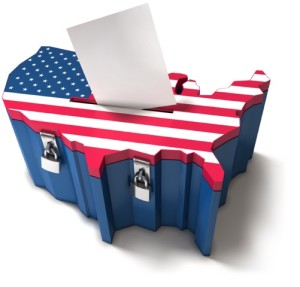As Election Day nears and a unique campaign season ends, some sets of stocks will be impacted more than others.
John Canally, chief economist strategist for LPL Financial, says the sectors most prone to fluctuate based on the presidential election results are financials, energy and health care. He named these groups through fundamental and technical analyses.
One group has been particularly at-risk during the election cycle.
“So far, it’s been the financials. Financials have struggled here as Mrs. Clinton has started to lead in the polls,” Canally said Friday on CNBC’s “Trading Nation.”
According to LPL Financial research, there’s a connection between the rising odds of Clinton clinching the election and banks’ performance relative to the S&P 500 suffering.
“She’s probably going to impose more regulation on financials than Mr. Trump would, and so you’re starting to see some underperformance in financials as she becomes more of the clear-cut winner in November,” he said.
And while he grants that a rate increase from the Federal Reserve would help financials, “I think having Mrs. Clinton as president would likely be a drag [for the financial sector].”
Federal Reserve chair Janet Yellen’s speech on Friday at the annual Jackson Hole, Wyoming, summit and the CNBC interview with Fed Vice Chairman Stanley Fischer renewed expectations that a raise in interest rates is near.
When it comes to the energy sector, its performance is likely “going to determined by the oil price, which of course is determined globally,” Canally said. But the candidates have starkly different views on how to address energy, oil consumption and climate change.
In July, Democrat Hillary Clinton said “there has to be a greater fee on extraction while we do everything we can to transition to clean, renewable energy and energy efficiency.”
Conversely, Donald Trump has called for optimizing domestic drilling and hutting down partnerships with oil-rich OPEC nations.
“If Mrs. Clinton wins and it’s a landslide, a historic landslide, she may be able to pull the house over to the Democrats,” Canally said, and consequently succeed in passing energy-related legislation that may hurt the industry’s incumbents.
via CNBC
